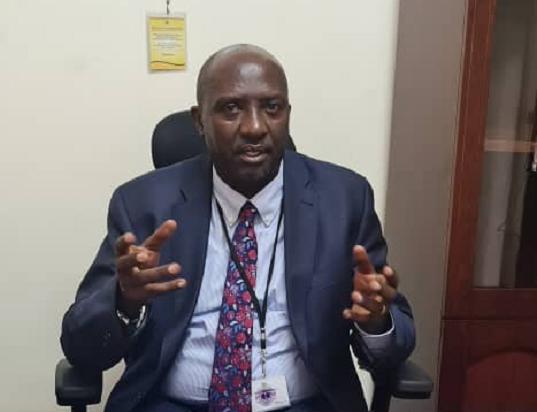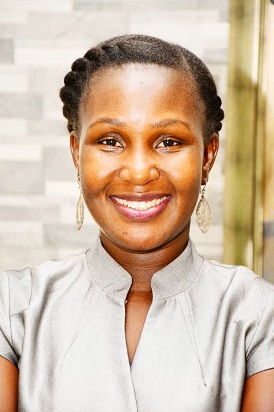Director MIU, Willis Bashaasha
By Richard Kintu
The Manifesto Implementation Unit (MIU) is the organ mandated through the Office of the President to monitor the progress of the implementation of the manifesto commitments that the government makes to Ugandans during the campaigns.
It then reports this progress to the presidency and other government entities, which enforces consistency in the delivery of services to the masses. Currently, the MIU is tasked with monitoring the implementation of the 2021-26 Manifesto which was the basis of electing President Yoweri Museveni to the leadership of Uganda in this present term. This publication sought out Mr. Willis Bashaasha (BW), the Director MIU to share the progress of the current manifesto as well as the challenges faced especially during a time when the government is constrained by resources to execute most programmes.
Read on for Bashaasha’s insights in the excerpts of the following interview:
QTN: It is now a year and a half into the NRM Manifesto 2021-26. How do you gauge the progress of fulfillment of the commitments the government made to Ugandans in the social contract it made to them as a basis for being voted into power again? As a chief monitor of implementation are you satisfied with the progress so far?
BW: As you’re aware the Financial Year and the Political year are not in tandem. So, in terms of implementation, the first year has been more or less a planning year. Part of this planning has been the shift from the sectoral to programme-based budgeting and planning. As such, all government MDAs (Ministries, Departments and Agencies) were aligning their plans and budgets as per the new planning architecture as provided for by the NDP III.
All that therefore means that in terms of actual implementation of the new 2021-26 manifesto commitments, we haven’t achieved a lot. That, however, doesn’t mean that there have been no gains at all; there are quite a few accomplishments that are being registered which spill over from the interventions of the last term and also. There are also the non-monetary ones which are in terms of the policy and legislative interventions.
QTN: So, bearing in mind that little has been done yet there seems to be a lot of expectation and demand in that regard, when do you expect to catch up so that Ugandans can be content?
BW: We were very optimistic that the actual implementation would start this year 2022/23 because that fits well in the implementation roadmap. But we have been let down by the extent of releases to support the execution of the implementation process. However, we expect the ministry of finance to do more in terms of release of funds for development projects in the remaining quarters. You have to appreciate that there have been constraints in the resource envelope which was exacerbated by recent unforeseen shocks starting with the Covid-19 pandemic and then the Russia-Ukraine war which has hampered aggregate demand and supply patterns in global economies.
QTN: Are there any tangible or physical examples you can cite?
BW: The interventions like the salary enhancements which have been done across the various sectors like the judiciary, the army and scientists are there for all to see. We also witnessed the conclusion of the Final Investment Decision (FID) for our oil and gas sector (and as we speak the rigs are on the way from Mombasa to the Albertine region). There’s also the commissioning of the oil roads which were concluded this term. Many seed schools have also been commissioned across the country as well as the various health centres.
The Parish Development Model (PDM) which is our general purpose vehicle for socioeconomic transformation was also launched while various water projects to increase access to safe and clean water have also been commissioned in various parts of the country.
QTN: This year the MIU has had extensive engagement with manifesto implementation structures from the central, local governments and technical wings. What exactly was the idea behind these engagements?
BW: The idea is basically to bring on board all stakeholders in manifesto implementation with a view of appreciating and understanding the task at hand. This is part of our mandate. Through these engagements we have shared experiences, discussed new commitments, implementation strategies, lessons and challenges with the aim to improve effectiveness and efficiency in implementation.
We have also emphasized the role of these stakeholders in the implementation process.
QTN: The Parish Development Model (PDM) is earmarked in the NRM Manifesto 2021-26 as the general purpose vehicle for wealth creation and socioeconomic transformation. But as we speak now, a lot of information about it is concentrated on the theft of the little funds so far disbursed to would-be preliminary implementers. What could be the problem in your opinion as the chief implementer of government programmes?
BW: I believe the ongoing reports of the challenges facing PDM is a manifestation of both planning and design gaps in the programme. The issue of conceptual clarity is critical for the citizens to appreciate the whole programme. Secondly, we have a challenge of corruption as we are witnessing the abuse of funds. Thirdly is the issue of data especially on the 39% beneficiaries. The last major challenge is a mindset issue where some people think this money is a token for their support towards the party as opposed to socioeconomic transformation of the entire citizenry.
QTN: What remedies are being put in place to remedy this so that the PDM isn’t counted among similar programmes which failed to really hit their targets?
BW: The responsible Ministry (Local Government) and its agency (which is the PDM National Coordination Secretariat) are working around the clock to sort out many of the above gaps. And to strengthen oversight, the Presidency through the minister, Hon. Milly Babalanda, has directed all the RDCs to up their responsibility on top of their other assignments, to closely monitor what’s going on in the PDM. The RDCs are working closely with the State House Anti-Corruption Unit to cause action on any corruption-related matter identified with immediate effect. The engagement was also to discuss the alignment of the various interventions to the respective programmes as prescribed by NDP III.
QTN: Recently the MIU rolled out a Monitoring & Evaluation reporting matrix for the manifesto implementation and a couple of meetings have been held with the manifesto focal persons in the various MDAs. What’s the idea behind this arrangement and what has been the major take from such engagements?
BW: This mechanism is basically meant to harmonise the reporting processes by all people tasked with manifesto implementation. Using it we can keep track of the manifesto commitments fulfillment while at the same time evaluating the progress. This will not only make us communicate the status but also guides our physical field monitoring process which is meant to validate the existence of these projects. Secondly, we engage the various MDAs to be able to guide them through our monitoring and evaluation methodology so that we can assess the indicators and the targets. On the issue of the outcomes, we are satisfied that through our engagements, the focal persons have understood our expectations on their side; that’s why now we can ably tell where we are in terms of progress and what exactly we need to consolidate and sustain the efforts so far reached.
QTN: Any assurances to Ugandans who may be worried by the slow progress so far?
BW: I want to assure the general public that as I mentioned earlier, we are not badly off in terms of planning and being set to implement the manifesto. We have just been let down by the inadequacy of resources to support the implementation. With the promises that the resource position may improve as the economy continues to recover, we have high optimism that the manifesto commitments will be fulfilled within the term.





